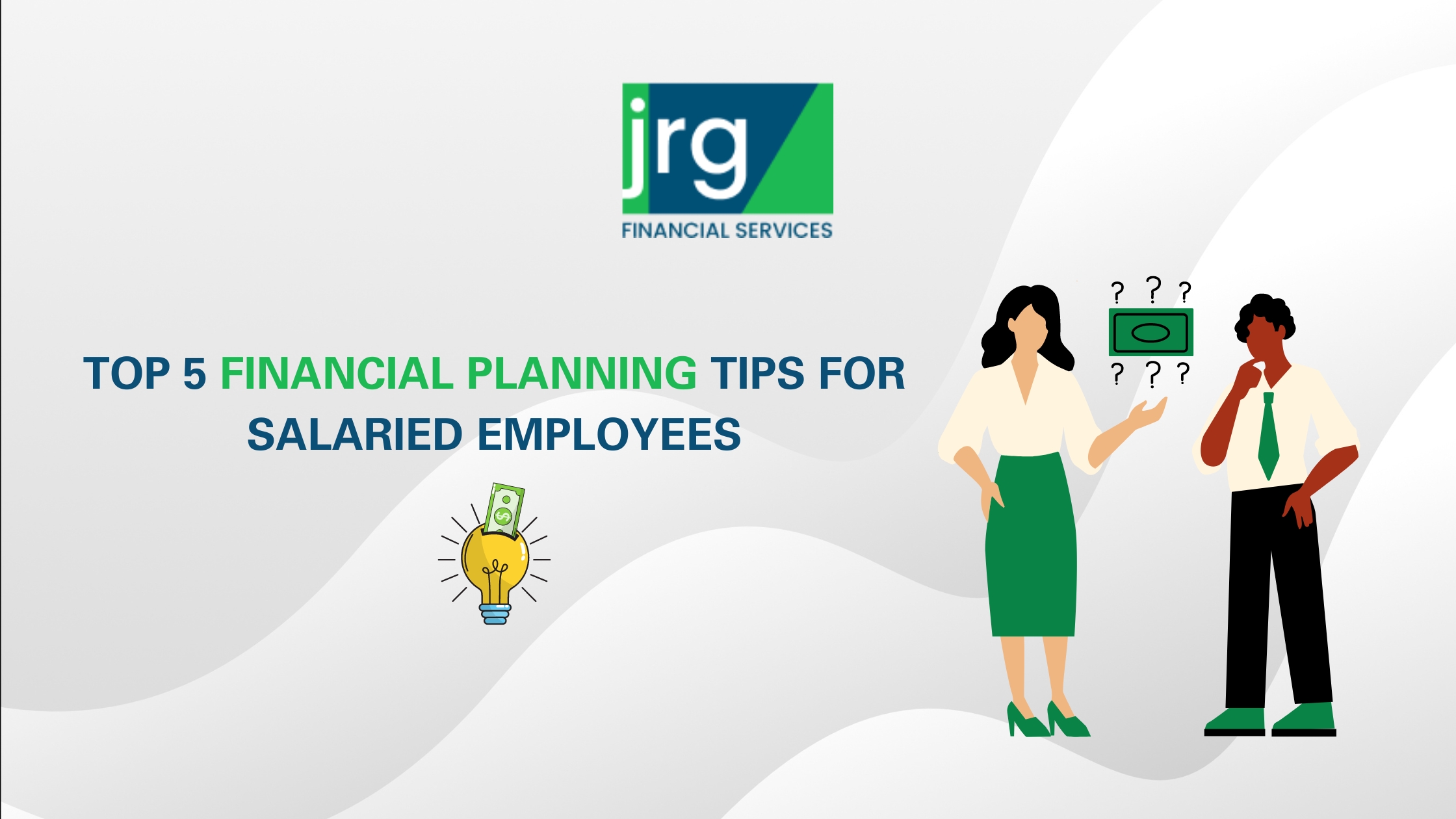Financial planning is essential for everyone, but it becomes particularly critical for financial planning for salaried employees who depend on a fixed monthly income. Managing expenses, saving for the future, and ensuring financial stability requires a strategic approach. Here, we’ll explore the top 5 financial planning tips for salaried employees to help you make the most of your income and achieve long-term financial security.
Top 5 Financial Planning Tips for Salaried Employees

1. Create a Comprehensive Budget
Budgeting is the foundation of financial planning for salaried employees. A well-structured budget allows you to track your income and expenses, ensuring you live within your means while setting aside money for savings and investments. Start by listing your monthly expenses, such as rent, utilities, groceries, and transportation. Allocate a portion of your salary for discretionary spending and entertainment, but keep it within limits. By budgeting wisely, you can ensure that a portion of your income is directed towards savings and long-term goals.
Pro Tip: Use budgeting apps or financial tools to automate your budget and keep track of expenses easily.
2. Build an Emergency Fund
One of the most crucial aspects of financial planning for salaried employees is building an emergency fund. Life is unpredictable, and an emergency fund acts as a safety net in times of financial crisis. Whether it’s an unexpected medical expense, job loss, or home repair, an emergency fund can prevent you from relying on loans or credit cards. Aim to save at least 3 to 6 months of your monthly salary in a liquid and easily accessible account.
Why it matters: An emergency fund ensures that you’re financially secure even during unexpected situations, protecting your long-term financial plans.
3. Invest for the Future
Saving alone isn’t enough; you need to grow your wealth through smart investments. As part of financial planning for salaried employees, investing should be a priority. Consider diversifying your portfolio across different asset classes, such as stocks, bonds, mutual funds, and real estate. Based on your risk tolerance, you can choose between aggressive or conservative investment strategies. The earlier you start investing, the more you benefit from the power of compounding, allowing your money to grow exponentially over time.
Investment Tip: Make sure to review your investment portfolio regularly to ensure it aligns with your financial goals and risk appetite.
4. Plan for Retirement Early
Retirement planning is a critical component of financial planning for salaried employees. Although retirement may seem far off, the sooner you start saving, the better off you’ll be. Utilize tax-advantaged retirement plans such as the Employees’ Provident Fund (EPF) and Public Provident Fund (PPF) in India to secure your financial future. Additionally, you can explore other long-term investment options like National Pension System (NPS) and annuity plans to supplement your retirement savings.
Why start early: Early retirement planning ensures that you have a comfortable post-retirement life without financial stress.
5. Manage Debt Wisely
Many salaried employees face the burden of debt, whether from credit cards, personal loans, or home loans. Managing debt is an essential aspect of financial planning for salaried employees. Avoid accumulating high-interest debt and prioritize paying off existing loans as quickly as possible. Consider consolidating your debts to lower your interest rate or extend the repayment period to make it more manageable. Always make timely payments to avoid late fees and negatively impact your credit score.
Debt Strategy: Use the snowball or avalanche method to pay off your loans based on their interest rates and amounts.

Conclusion
Financial planning for salaried employees is essential for achieving financial stability and long-term wealth creation. By following these five tips—budgeting, building an emergency fund, investing wisely, planning for retirement, and managing debt—you can create a strong financial foundation. Start early, stay disciplined, and regularly review your financial plan to ensure you’re on track to meet your goals.
Frequently Asked Questions (FAQs)
Q. What are the best investment options for salaried employees?
Some of the best investment options include mutual funds, stocks, fixed deposits, EPF, and PPF. Based on your risk appetite, you can explore a mix of these instruments for long-term wealth creation.
Q. How do I start retirement planning as a salaried employee?
Start by contributing to tax-saving retirement accounts like EPF and PPF. Additionally, consider long-term investments such as NPS and mutual funds. Begin as early as possible to take advantage of compounding returns.
Q. Why is an emergency fund important for salaried employees?
An emergency fund helps salaried employees cover unforeseen expenses without dipping into savings or taking on debt. It provides financial security during emergencies like job loss or unexpected medical bills.




